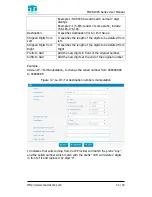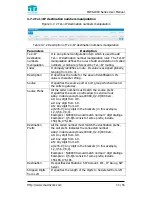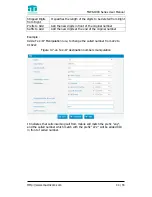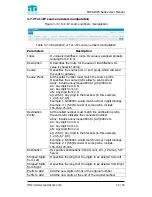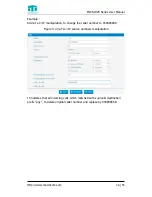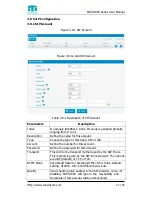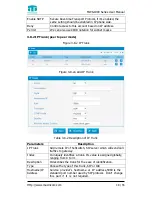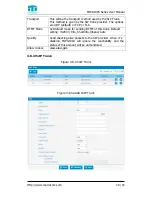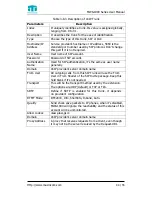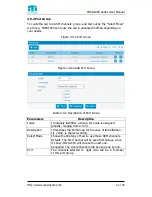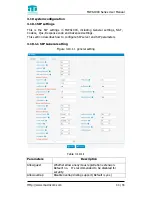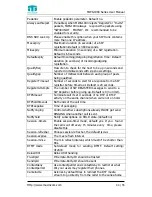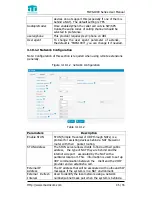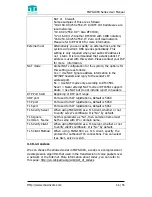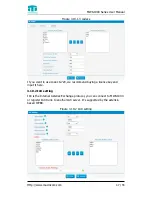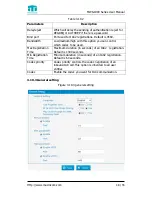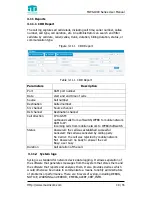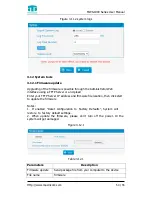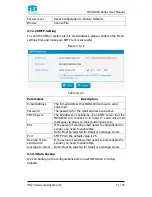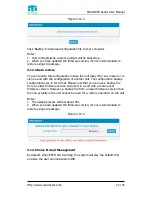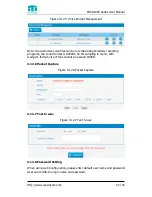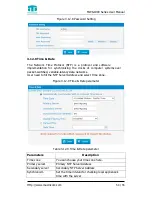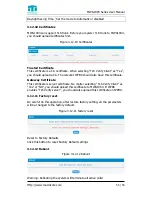
MWG1000 Series User Manual
Http://www.maxincom.com
46 / 55
NAT or
firewall.
Some examples of this are as follows:
“192.168.0.0/255.255.0.0”: All RFC 1918 addresses are
local networks;
“10.0.0.0/255.0.0.0”: Also RFC1918;
“172.16.0.0/12”:Another RFC1918 with CIDR notation;
“169.254.0.0/255.255.0.0”: Zero conf local network.
Please refer to RFC1918 for more information.
External host
Alternatively you can specify an external host, and the
system will perform DNS queries periodically. This
setting is only required when your public IP address is
not
static. It is recommended that a static public IP
address is used with this system. Please contact your ISP
for more
information.
NAT mode
Global NAT configuration for the system; the options for
this setting are as follows:
Yes = Use NAT. Ignore address information in the
SIP/SDP headers and reply to the sender's IP
address/port.
No = Use NAT mode only according to RFC3581.
Never = Never attempt NAT mode or RFC3581 support.
Route = Use NAT but do not include report in headers.
RTP Port Start
Beginning of RTP port range
UDP port
Port used for SIP registrations, Default is 5060
TCP port
Port used for SIP registrations, Default is 5060
TLS port
Port used for SIP registrations, Default is 5061
TLS Verify Server
When using MWG1004 as a TLS client, whether or not
to verify server’s certificate. It is “No” by default.
TLS Ignore
Common
Name
Set this parameter as “No”, then common name must
be the same with IP or domain name.
TLS Verify Client
When using MWG1004 as a TLS server, whether or not
to verify client’s certificate. It is “No” by default.
TLS Client Method When using MWG1004 as TLS client, specify the
protocol for outbound TLS connections. You can select
it as tlsv1, sslv2 or sslv3.
3.10.1.3 codecs
We can choose the allowed codec in MWG1004, a codec is a compression or
decompression algorithm that used in the transmission of voice packets over
a network or the Internet. More information about codec, you can refer to
this page:
http://en.wikipedia.org/wiki/List_of_codecs

